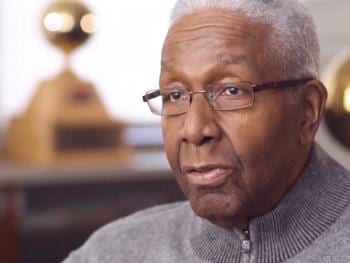
John Thompson, the legendary Georgetown Hoyas Basketball Coach, has passed away at the age of 78. He spent 27 seasons with the Hoyas with a record of 596-239 before he retired in 1999.
His love for the game came way before his legendary coaching career. John played basketball all throughout high school and went on to play on the collegiate level at Providence College. He became a part of the first Providence NCAA tournament team during his senior year in 1964. After graduation, Thompson was a third-round draft pick for the 1964 NBA draft and played for the Boston Celtics from 1964 to 1966. He retired in 1966 and switched from running plays on the court to calling them as a head coach.
“Big John” joined Georgetown’s basketball program in 1972, where he would spend the remainder of his career coaching at. He made an enormous impact on not only Georgetown’s basketball program but college basketball in general. He was the first African-American head coach to win major collegiate championship titles and led the 1988 National team to a bronze medal in the Olympics. He helped shaped generations of athletes like Allen Iverson, Alonzo Mourning, Dikembe Mutombo, and Patrick Ewing, who is now the current Georgetown coach.
Thompson was an advocate for his players, as well as their rights, and never ceased to use his platform to promote change. In 1989, Thompson staged a walkout during a game to protest “Proposition 48,” which prohibited freshmen from playing if they didn’t have qualifying SAT scores. There was also a situation where Thompson confronted Rayful Edmond when it had been reported that several of his players had been connected to the notorious D.C. drug kingpin.
“There’s a reason why his players talk more about what he taught them about life than on the court and what he taught them about life than on the court and why their loss today hurts like a parent gone,” ESPN sports business analyst Darren Rovell said in a tribute to Thompson on twitter.
Thompson’s influence went beyond what he did on the court, and it will continue to live for generations to come through the lives he touched.


